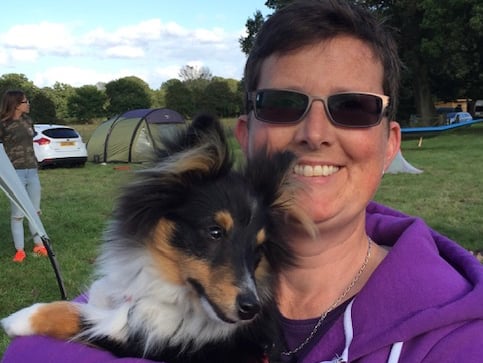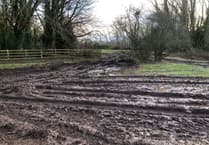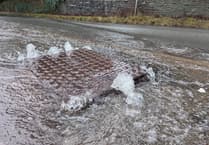The importance of sleep
The weather is a little temperamental at the moment, but today we have sunshine so it's feeling a little more spring like!
This week we are looking at the importance of sleep for our dogs. I know how much I need my sleep to rest and recuperate from a day’s work and all the ups and downs a day can bring, and also it is hugely important for me to function well the next day! Our dogs are just the same, they need their sleep to decompress and recover from the stimulation and stresses of the day emotionally and physically. Throughout the day, the stress hormones in your dog’s body-cortisol and adrenalin -will rise, so sleep is recovery time which lowers these hormones.

So how much sleep does your dog need? Your average household pet dog will need 12-15 hours’ sleep a day, which is quite a substantial chunk of their day.
Older dogs need more sleep than this and puppies need much more, up to 20 hours a day. It is essential for pups to get their sleep as this enables healthy brain development, physical development and helps a healthy immune system to develop. If you have had experience of a puppy, you know that their ‘awake’ times are short and busy! They are awake for short periods, exploring, seeing, and hearing new things as well as taking in lots of new smells. When a pup needs sleep, it can be for between half an hour and a couple of hours. Sleep is the way the pup’s bodies recover and importantly, how they inwardly compute all their experiences. It’s crucial that we schedule regular nap times for young puppies.
At a young age, they are not adept at self-regulating and need help to rest and sleep before they get tetchy and over excitable. Schedules and routines are crucial for puppies and setting out the sleeping area is key here too. You want to teach your pup where they can go to sleep and relax. Crates are ideal for this-make sure the crate is situated in a quiet corner away from busy areas in the house, where there isn’t too much bright lighting, and using a cover for the crate can help create a nice quiet den too. Once pup knows the ‘sleep and rest’ area, they will start to take themselves off to it on their own too. Make it warm, cosy and comfortable. I can guarantee that if your puppy is exhibiting increased over excitement, is more bitey than usual and cannot listen to you, the chances are they are overtired and need rest and crucially, sleep. It’s just the same as an over tired toddler!
As your puppy gets older, you will be able to provide more rest and sleep areas for them. At home with our dogs, we established the room where we spend the evening in, reading or watching the TV as a ‘no play’ zone, so they learnt from an early age that we don’t play with toys in this room, it’s for resting, relaxing and sleeping. Once you establish that, the dog will have an expectation of what happens when we go into that room. This really helps to prevent a young dog developing habits such as repeatedly bringing the toy or the ball to you when you are trying to watch a programme on TV!
Make sure you set out time in your dog’s daily routine as they mature to get adequate sleep time and if you have an older dog, remember that they will want to sleep more now. Something to consider is what your dog sleeps on and to give them a choice of beds. Some dogs like to curl up in a ball, some like to lie out flat, some like to make a nest. All dogs are different and its good to get to know what your dog feels comfortable on. Some older dogs like more support for those arthritic joints and may like a slightly raised bed off the floor. Memory foam mattresses are great for older dogs. My older dog Kilo has double elbow dysplasia, and she loves her slightly raised bed with a thin memory foam mattress. She can get up easily from this, whereas a deeper soft bed would be more difficult for her to get out of.
Dogs will sleep deeply (REM sleep), doze and take naps. All contribute to the repair of their physical and emotional well-being. Just like humans, being sleep deprived can be extremely detrimental to your dog’s overall health. You will know when your dog is in REM sleep as they will be deep sleeping and probably dreaming! Think leg kicks, little barks, ears and eyes twitching, is that a squirrel they are dreaming about?!
Finally, the most important thing when your pup or dog is sleeping…? Yep, the phrase, ‘Let sleeping dogs lie’ is key. When they are asleep, leave them to sleep and relax and dream.





Comments
This article has no comments yet. Be the first to leave a comment.